Feeling safe and secure is paramount for women living independently, and a reliable guard dog can offer protection and invaluable companionship. These loyal and vigilant companions are unwavering allies in women’s solo living. Finding the right guard dog can make all the difference in feeling safe and protected in today’s world, where personal security is a top concern.
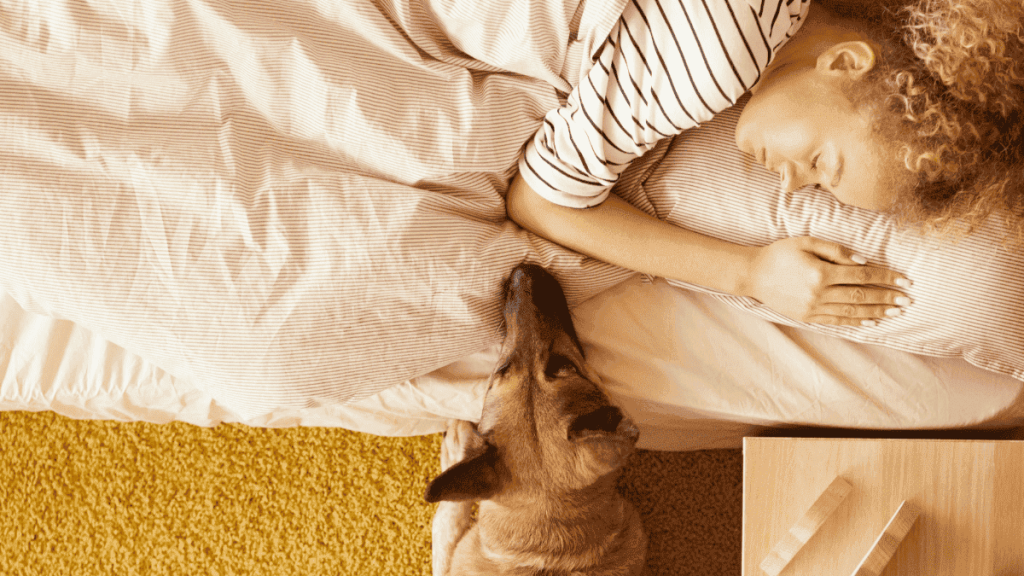
Whether you’re a city dweller or reside in a more rural setting, the best guard dogs for women living alone can be steadfast and devoted companions, offering protection and unwavering loyalty. Women navigating the challenges of living alone can find comfort and reassurance in the presence of a guard dog, providing a sense of security during daily activities and a loyal and loving presence at home.
Join us as we explore the top choices for women seeking a trusted and protective furry friend and discover how these remarkable animals can bring peace of mind and a sense of empowerment to those living independently.
7 Best Guard Dogs for Women Living Alone
German Shepherd: The Timeless Protector
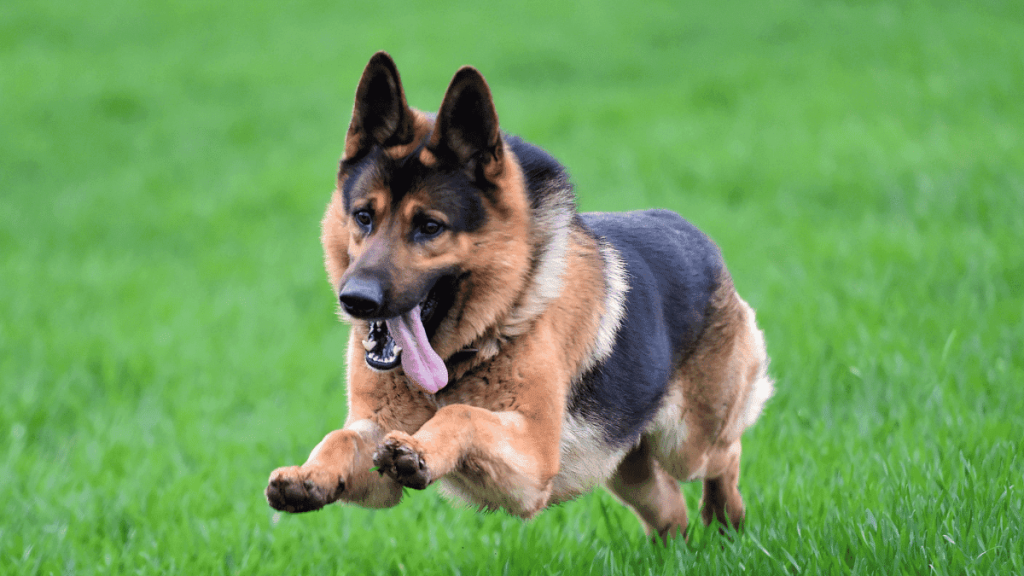
The German Shepherd, known for its brilliance and trainability, has a long history as a guard dog. Renowned for their loyalty, versatility, and innate protective instincts, they are regarded as one of the best guard dogs for women living alone. With proper training, German Shepherds can provide protection without displaying excessive aggression.
Training a German Shepherd for protection begins with basic obedience training and socialization, which are crucial. Positive reinforcement techniques are effective, and establishing clear boundaries and rules is essential. Given their natural protectiveness, it is important to channel their instincts to align with the specific needs of women living alone.
Doberman Pinscher: Elegant and Fearless
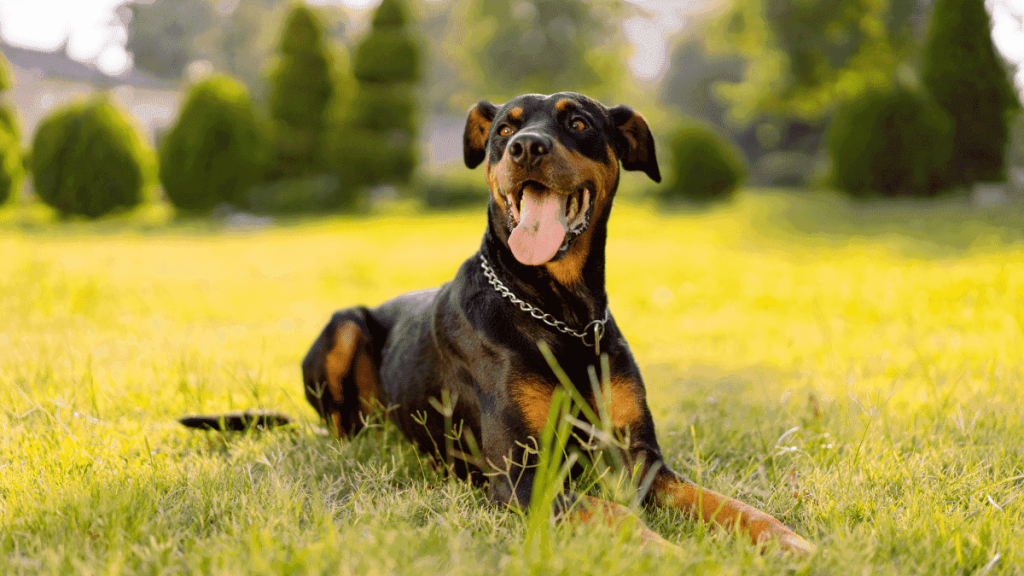
The Doberman Pinscher is an elegant and fearless breed celebrated for its loyalty and agility. They excel in guard and alert roles, making them an ideal choice as the best guard dog for women living alone. Despite their reputation for aggression, they can become loyal and social companions with proper training and socialization.
Establishing clear boundaries and rules early on is crucial when training a Doberman Pinscher for protection. Positive reinforcement techniques are effective, and thorough socialization with people and other animals is essential. When raised by women living alone, they can develop into highly social and protective companions, dispelling misconceptions about their temperament.
Rottweiler: Robust Guardians
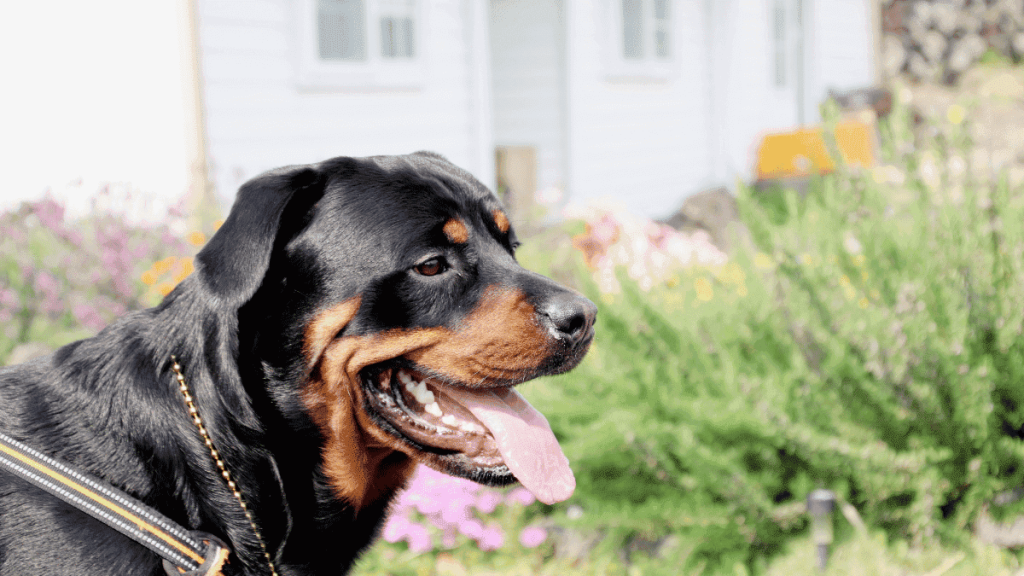
The Rottweiler is renowned for its sturdy and robust nature, presenting an imposing presence. This breed is distinguished by its natural protective instincts and unwavering loyalty to its owners. Despite their reputation for aggression, Rottweilers can become loyal and friendly companions with proper socialization and training.
Establishing clear boundaries and rules early on is vital when training a Rottweiler for protection. Positive reinforcement techniques are effective, and thorough socialization with people and other animals is essential. For women living alone, it is crucial to dispel misconceptions about their temperament and underscore the significance of early socialization and training when considering the best guard dogs for women living alone.
Belgian Malinois: Energetic and Alert
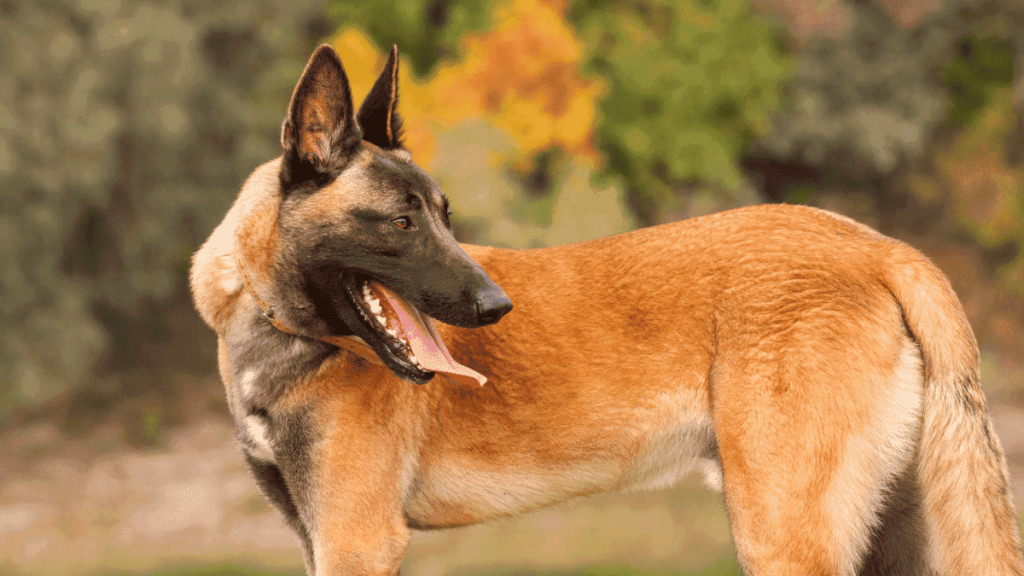
The Belgian Malinois is a highly energetic and alert breed frequently employed in police and military roles. Renowned for their intelligence, agility, and versatility in various protective capacities, they can be one of the best guard dogs for women living alone with proper training.
When training a Belgian Malinois for protection, it is vital to channel their energy and instincts effectively. Positive reinforcement techniques are effective, and establishing clear boundaries and rules is essential. With the proper training, they can become loyal and social companions, providing invaluable security for women living independently.
Bull Terrier: Spirited Guardians
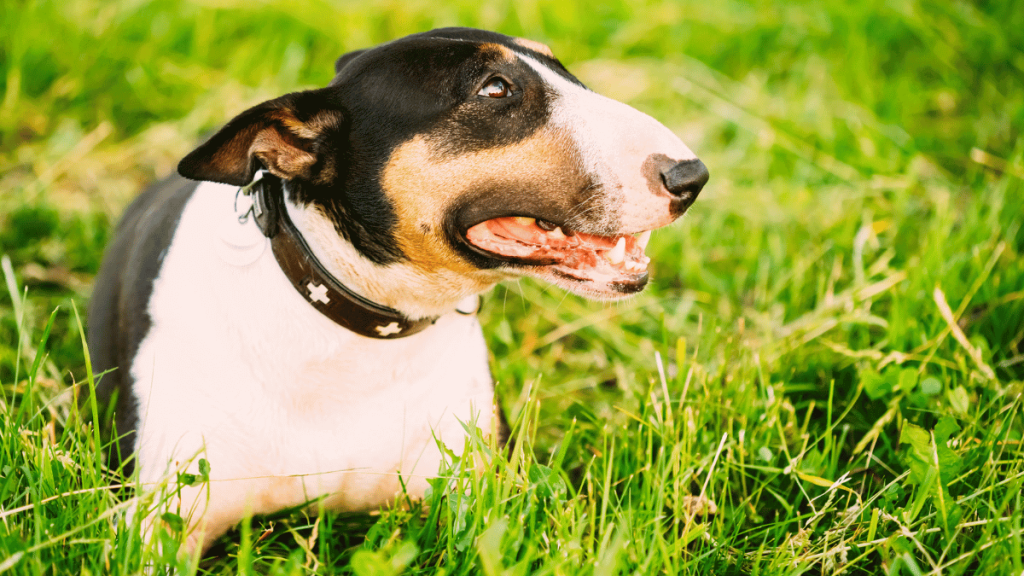
The Bull Terrier is a spirited breed celebrated for its loyalty and protective instincts, making them one of the best guard dogs for women living alone. Naturally alert and defensive, with proper training and socialization, they become reliable guardians.
Establishing clear boundaries and rules early on is essential when training a Bull Terrier for protection. Positive reinforcement techniques and thorough socialization with people and other animals are crucial. With the proper training, they evolve into loyal and social companions, offering invaluable security for women living independently.
Boxer: Protective and Playful
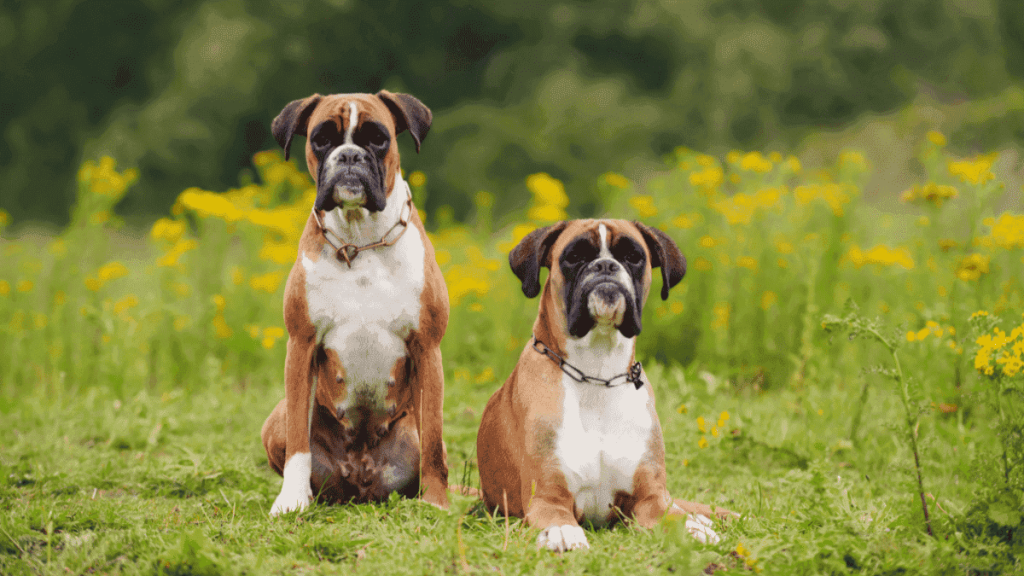
The Boxer is a protective breed known for its playful and affectionate demeanor. They are naturally alert and inclined to form strong bonds with their owners, making them an excellent choice. With proper training and socialization, they can become reliable guardians.
When training a Boxer for protection, it is essential to establish clear boundaries and rules from an early age. Positive reinforcement techniques are effective, and thorough socialization with people and other animals is necessary. Many women have found great companionship and security with Boxers while living independently, highlighting their suitability as the best guard dogs for women living alone.
Bullmastiff: Gentle Giant Guardians
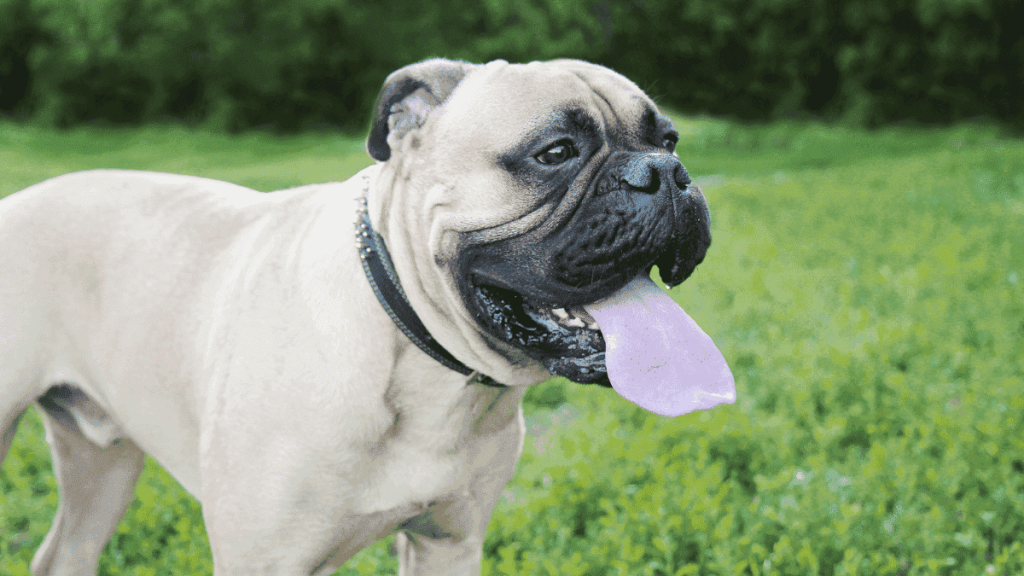
The Bullmastiff is a gentle giant breed known for its strong protective instinct. Their calm demeanor and innate guarding abilities make them an excellent choice as best guard dogs for women living alone. With proper training and socialization, they can become loyal and reliable guardians.
When training a Bullmastiff for protection, it is crucial to establish clear boundaries and rules from an early age. Positive reinforcement techniques are effective, and thorough socialization with people and other animals is essential. Their adaptability to living spaces makes them suitable companions for women living alone in various living situations.
Considerations for Choosing the Right Guard Dog
Temperament: Assessing the dog’s temperament, including energy level, socialization, and history of aggression, is essential for a successful and safe relationship with the owner.
Size and Living Space: Considering the dog’s size and energy level relative to the available living space is crucial to ensure its comfort and well-being in its new home.
Training and Socialization: Proper training and socialization are vital in shaping a well-rounded guard dog that interacts confidently with people and other animals, fostering a harmonious coexistence with the owner and others.
Training Tips for Your Guard Dogs
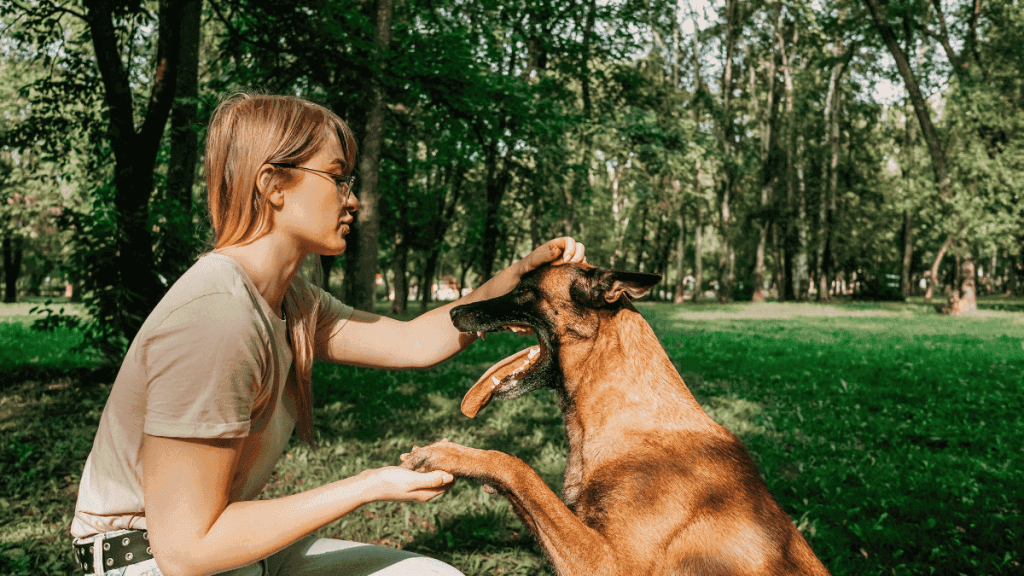
Ensuring your guard dog is protective and well-behaved is crucial for a harmonious living arrangement. Practical training tailored to women living alone is paramount for the best guard dogs. Start with general obedience training, focusing on commands like “sit,” “stay,” and “come.” Socialization is critical; expose your guard dog to various environments, people, and situations to enhance their adaptability.
When reinforcing protective behaviors, celebrate and reward instances of alertness and appropriate responses to potential threats. For women living alone, it’s imperative to emphasize positive reinforcement. Build a strong bond through consistent training sessions, creating trust between you and your loyal guard dog. Remember, a well-trained companion enhances security and brings immeasurable companionship.
Maintenance and Care of a Guard Dog
Healthcare Routine
Ensuring the well-being of your guard dog is vital to their ability to carry out their responsibilities effectively. Regular veterinary check-ups are imperative to uphold your dog’s health. Vaccinations, preventative care, and parasite control are integral to maintaining your dog’s peak condition. Additionally, staying vigilant about your dog’s vaccination and medication schedules is crucial to avoid missed doses.
Exercise Needs
Guard dogs need regular exercise to maintain their health and alertness. Daily walks, runs, or playtime in a fenced yard are essential for physical fitness and mental stimulation. Inadequate exercise can result in obesity, boredom, and destructive behavior. It’s crucial to recognize that different breeds have varying exercise needs, necessitating research into your dog’s specific requirements.
Nutrition and Diet
Nutrition is vital for your guard dog’s health. A balanced diet with essential nutrients, high-quality dog food, fresh water, and occasional treats is crucial. Overfeeding can lead to obesity and health issues, so providing the appropriate food for your dog’s size and breed is essential.
In conclusion, ensuring your guard dog’s health and well-being is crucial for effective duty performance. Regular veterinarian check-ups, exercise, and a balanced diet are essential for maintaining top condition. Following these guidelines ensures your guard dog is healthy, happy, and ready to protect you.
Legal Considerations of Owning a Guard Dog
Owning a guard dog entails legal considerations that must be thoroughly researched and understood. Liability is a primary concern, as owners may be held accountable for any injuries or property damage caused by their guard dog. It is crucial to have proper insurance coverage and adhere to local laws and regulations.
Breed-specific legislation is another critical consideration, as some areas have restrictions or bans on certain breeds of guard dogs. Proper training and socialization are vital to prevent incidents and reduce liability. This includes obedience training, socialization, and ensuring adequate containment and supervision.
Owning a guard dog can offer added security for women living alone. Still, it is essential to comprehend and comply with all legal considerations to ensure the safety of the owner and the community.
Finding Your Guard Dog: Adopting vs. Buying?

When deciding between adoption and purchase, a shelter offers a cost-effective option but may present challenges in finding a specific breed or temperament, while buying from a breeder provides predictability but can be more expensive. Researching the breeder’s reputation and ethical practices is crucial.
Assessing the dog’s temperament, including energy level, socialization, and history of aggression, is essential for a successful and safe relationship with the owner, regardless of adoption or purchase. A guard dog with the right temperament can provide the necessary protection and be a loyal companion, contributing to the safety and well-being of women living independently.
Conclusion
Choosing the best guard dogs for women living alone can provide invaluable companionship and security. The seven breeds highlighted in this article offer a combination of loyalty, intelligence, and protective instincts, making them ideal choices for solo female guardians.
Whether it’s the German Shepherd’s unwavering devotion, the Rottweiler’s natural protective nature, or the alertness of the Doberman Pinscher, each of these breeds has unique qualities that can bring peace of mind to women living independently.
By carefully selecting the right guard dog, women living alone can find a trusted and loyal companion that offers protection and enriches their lives with unwavering loyalty and affection.
